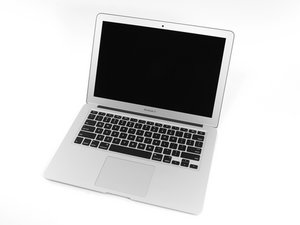MacBook Air WIFI card Upgrade?
Hello,
I have a MacBook Air (2015 early) and the WIFI connection is HORRIBLE. I also have a Dell laptop used exclusively for my job. I can have both on my desk and the Dell connects immediately and reliably to any WIFI connection, yet the MacBook Air has trouble connecting. If I am any reasonable distance from the router (within my own home) the Mac drops connection constantly where the Dell never drops.
My question is - I really like the Air but want to improve the connection - is it possible to replace the existing air card with a different one that will improve performance?
Here is the current card details:
Card Type: AirPort Extreme (0x14E4, 0x117)
Firmware Version: Broadcom BCM43xx 1.0 (7.77.106.3 AirPortDriverBrcmNIC-1435.3)
Thank you for any suggestions
Susan
PS - my mac dropped connection 3 times while I was typing this question :-(
Update (12/22/2019)
Thank you all for the information . Here is the information from my WIFI connection

It was suggested by my colleague that I might benefit from a WIFI doggle to bypass the Apple WIFI card, would that be a benefit?
Thank you all again.
Susan
crwdns2934109:0crwdne2934109:0



 10
10  56
56  291
291 


crwdns2944067:03crwdne2944067:0
Well we can see your connection is over the lower 2.4 GHz band which only give you 145 Mbps compared to my connection which is 5.0 GHz band which offers 300 Mbps. Also note you have the newer 802.11ac board Vs mine which is the older 802.11n.
So clearly you are not connecting to the better throughput band! You'll need to see what your Dell is using to connect and you'll need to identify which AP your system is connecting to. Vs you're Dell.
As far as your friends idea of using a USB dongle most don't offer macOS drivers and the ones that do, are just the older 802.11n units.
If you can get your connection issues worked out with your built-in WiFi it would be better and faster!
crwdns2934271:0crwdnd2934271:0 Dan crwdne2934271:0
@danj
Thank Dan, I installed a TPLink range extender at my desk and this appears to be helping. I was able to configure the range extender to connect to the 5.0GHz band and the signal appears much better and when I am connected it performance is good. The only issue I have not is my mac does not easily reconnect when it wakes from sleep - I need to reboot for it to connect properly - but I can live with it.
crwdns2934271:0crwdnd2934271:0 CMT_STM crwdne2934271:0
@CMT_STM - That works too! Now you are relaying from 2.4 GHz to the 5.0 GHz bands. While better your still limited to the throughput of the 2.4 GHz bands. Hopefully you can figure out how to get a direct 5.0 GHz connection altering your systems settings.
crwdns2934271:0crwdnd2934271:0 Dan crwdne2934271:0